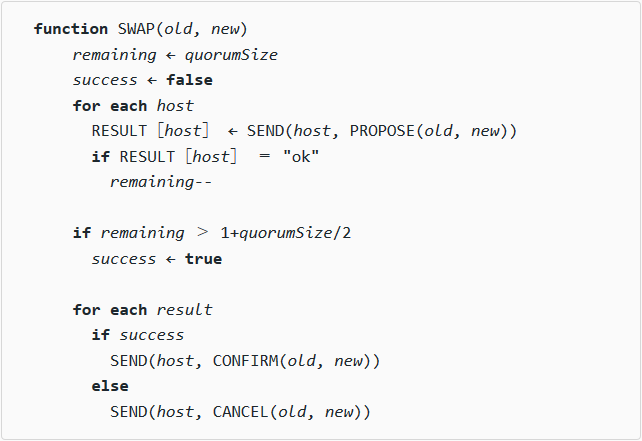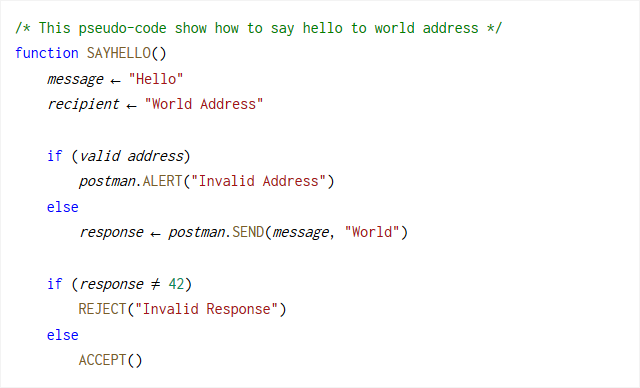A pseudocode/algorithm formatter for sites powered by Jekyll.
This is a updated fork from wkm/jekyll-pseudo.
Sometimes you don't want to use a particular programming language to demonstrate a concept because of the syntactic overhead. jekyll-pseudocode-b lets you use a gently styled free-formated representation.
- Install the jekyll-pseudocode-b gem by running.
gem install jekyll-pseudocode-b
- Add the following line to your site's
Gemfile
gem 'jekyll-pseudocode-b'
- And add the following line to your site plugin's
_config.yml
plugins:
- jekyll-pseudocode-bNote: if jekyll --version is less than 3.5 use:
gems:
- jekyll-pseudocode-b- Indentation is preserved
- A word beginning with a capital letter is a keyword
- A word followed by parentheses is a function name
- All other words are variables
- Words within double or single quotes are generally strings
- Variables that calls a function can reproduce the following output:
myVar.FUNCTION(a); - A word that starts with
@will be marked as 'special'. This is if you want to highlight a variable.
Output is annotated with <span> classes and can be styled using CSS. Typically keywords are made bold and variables are italicized. Using the following code lines:
{% pseudocode %}
Function swap(old, new)
remaining <- quorumSize
success <- False
For Each host
result[host] <- send(host, propose(old, new))
If result[host] = "ok"
remaining--
If remaining > 1+quorumSize/2
success <- True
For Each result
If success
send(host, confirm(old, new))
Else
send(host, cancel(old, new))
{% endpseudocode %}
With a bit of formatting, the above code becomes:
The following table shows auto-formated symbols:
| Syntax | Symbol |
|---|---|
| <- | ← |
| -> | → |
| <-- | ⟵ |
| --> | ⟶ |
| => | ≥ |
| <= | ≤ |
| == | = |
| := | ≔ |
| = | = |
| < | < |
| > | > |
| [ | [ |
| ] | ] |
| <-> | ↔ |
| <--> | ⟷ |
| $pi | π |
| $tau | 𝛕 |
| $infinity | ∞ |
You can also create your own CSS style for pseudo-codes like the images below. Check on the css folder for CSS files examples.
Wiktor Macura is the author of this plugin. This is fork for updated version with some new features. Also it's based on the fork of Victor Bazterra.


